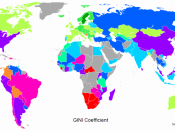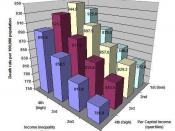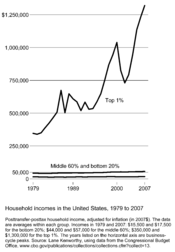Introduction:
There appears to be a general consensus that we have entered the information age and that we are on the verge of the information economy. Information and Communication Technologies (ICT) are rapidly consolidating global communication networks and international trade with implications for people in developing countries. So some writers argue that the geography would be meaningless for the economy development once those developing countries are armed with good communications. On the contrary, some writers believe that geography still matters a great deal for economic interaction and for the spatial distribution of income.
To discuss, I will concentrate on the role of economic geography in economic development and the impact of ICT on economic growth. From the existing inequality of economic development, we can see distance still matters in terms of economic transactions and international income gradients. ICT can change the situation in different ways, but it cannot rewrite the rule of economic geography.
Existing inequality of economic development
In world wide, there exists inequality of economic development. In terms of material well being, the big gaps are stunning and show few signs of amelioration. According to the data assembled by Angus Maddison (1996), Africa's average income is $1,292 in 1992, which is almost the same as in 1970. Asia showed significant progress during the past 30 years, with average incomes rising from around $1,275 in 1965 to $3,252 in 1992. In Latin America and the Caribbean, average income levels in 1992 ($4,820) were only 6.6 percent higher than in 1974. Western Europe outpaced Africa in average per capita GDP by a factor of around 2.9 in 1820 and a factor of 13.5 by 1992.
From the existing inequality of economic development, we can see that on a global scale, the wealth of nations is well characterized by two geographical...



It's not that bad
You could have done a better job.
1 out of 1 people found this comment useful.